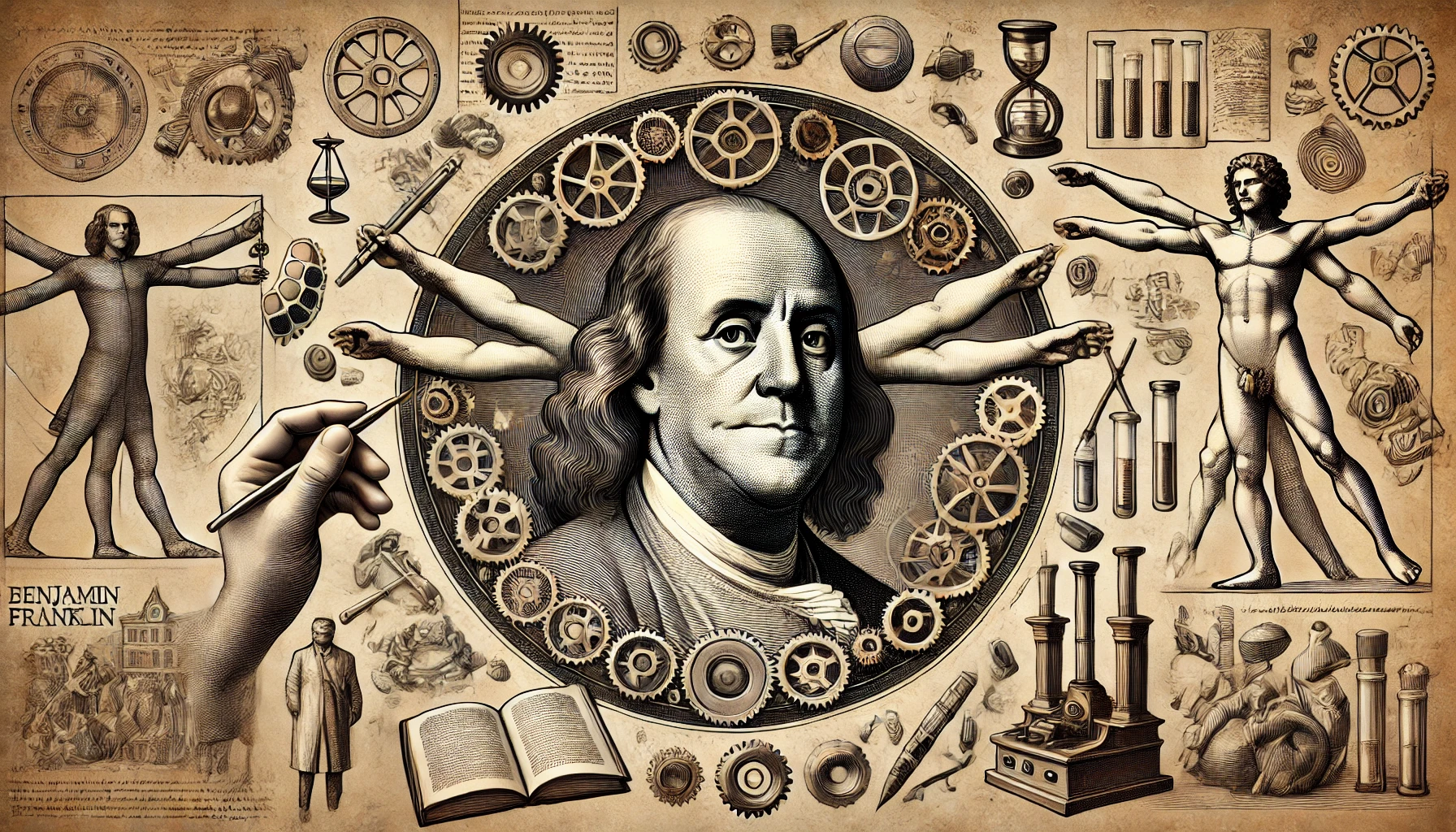The Renaissance Man: A Case for Being a Jack of All Trades
“A jack of all trades but a master of none… often times better than a master of one.”
This quote has intrigued me since high school, challenging the common perception that specialization is the only path to success. Let me take you on a journey through my thoughts on this concept and why being a “Renaissance man” might be more valuable than we often realize.
The Allure of the Renaissance Man
I first encountered the concept of a Renaissance man in my high school English class. My teacher, Mr. Parker, described it as someone with worldly knowledge and a good understanding of many concepts. This person could speak knowledgeably about various topics and fit in among different crowds. To my awkward teenage self, this idea was incredibly appealing.
The Renaissance man, or polymath, was a cultured individual of the Renaissance era, knowledgeable and proficient in a wide range of fields. Think Leonardo da Vinci or Benjamin Franklin - individuals whose expertise spanned multiple disciplines.
The Push Towards Specialization
As we progress through our education and careers, there’s often a push towards specialization. In college, we choose majors. In our jobs, we’re encouraged to become experts in specific roles. The business world seems to value specialists, making it challenging to switch careers without additional education like an MBA.
Popular wisdom often supports specialization:
- “I fear the fighter who has practiced one punch a thousand times more than the one who has practiced a thousand punches once.”
- In sports, the early specialization of athletes, with young people often encouraged to focus on a single sport year-round rather than playing multiple sports.
It’s important to note that this advice isn’t entirely wrong – there’s undeniable value in developing deep expertise. However, it often discounts too heavily the alternative approach of cultivating knowledge and skills across multiple disciplines. As we’ll explore, there are significant benefits to being a generalist that our specialization-focused culture may overlook.
The Case for Being a Generalist
Despite this trend, I believe there’s significant value in being a generalist, especially as we advance in our careers. Here’s why:
- Leadership Skills: As we climb the corporate ladder, a broader set of skills becomes crucial. The best CEOs and leaders aren’t necessarily the top specialists but those with a wide range of competencies.
- Adaptability: In a rapidly changing world, being adaptable is key. Generalists can often pivot more easily to new roles or industries.
- Interdisciplinary Thinking: Charlie Munger, in “Poor Charlie’s Almanack,” advocates for interdisciplinary thinking. He argues that having mental models from various fields helps in recognizing patterns that specialists might miss. This way we don’t fall victim to the man with a hammer tendency, where every problem looks like a nail.
- The Pareto Principle: You don’t need to master everything. Often, understanding 20% of a field can give you 80% of the practical knowledge.
- Lifelong Learning: Embracing a generalist mindset encourages continuous learning, keeping your mind open to new ideas and connections.
Finding Balance
The key isn’t to avoid specialization entirely, but to find a balance. Start by gaining deep knowledge in one area, then gradually expand your horizons. Aim for the 80-90% mastery level in your primary field, then seek the vital 20% in other areas that yield 80% of the understanding.
However, it’s crucial to note that being a generalist doesn’t mean having a superficial understanding of many fields. As Charlie Munger wisely points out, we should approach learning new disciplines with the same rigor and accountability as we do pilot training. Munger states:
“Like pilot training, the ethos of hard science does not say ‘take what you wish’ but ‘learn it all to fluency, like it or not.’”
This analogy is powerful. We don’t want pilots who only understand 20% of flying; we expect them to be fully proficient. Similarly, when expanding our knowledge into new areas, we should strive for a level of understanding that makes us truly competent, not just conversational.
The goal is not to become a dilettante or a charlatan who knows a little about everything but nothing in depth. Instead, aim to develop a robust understanding in multiple fields, each built on a solid foundation of knowledge and practice.
By following this approach, you can become a true Renaissance Man – someone with deep knowledge in multiple fields, rather than superficial knowledge in many. This depth across disciplines is what allows for the kind of innovative thinking and problem-solving that sets Renaissance individuals apart.
Insights from Polyglots
Polyglots - individuals who speak multiple languages fluently - offer valuable insights. As they learn more languages, they develop a deeper understanding of how languages work in general. This metalinguistic awareness allows them to approach new languages more strategically and learn them more efficiently.
Similarly, as we explore multiple disciplines, we start to recognize universal patterns:
- Interdisciplinary Insights: We can transfer ideas from one field to another, leading to innovative solutions.
- Complex Problem Solving: Understanding patterns across disciplines equips us to tackle multifaceted issues.
- Enhanced Creativity: Seeing connections between unrelated fields often sparks innovation.
- Accelerated Learning: Recognizing universal patterns makes it easier to enter new fields and acquire new skills.
Conclusion
In a world that often pushes for hyper-specialization, don’t underestimate the value of being a modern Renaissance person. Embrace diverse knowledge, seek connections between different fields, and remember - sometimes, being a jack of all trades truly is better than being a master of one.
By cultivating a broad base of knowledge and skills, while still maintaining depth in key areas, we can navigate the complexities of our modern world more effectively. We can innovate, lead, and adapt in ways that specialists often cannot.
So, go ahead - explore that new field you’ve been curious about. Draw connections between your areas of expertise. You might just find that your diverse knowledge becomes your greatest strength in an ever-changing world.

